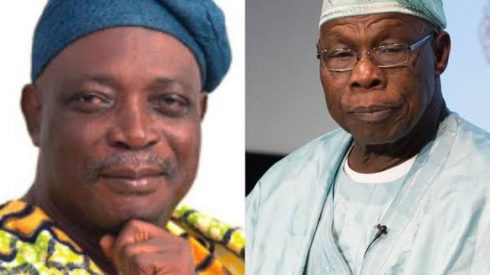In a stunning revelation that has the potential to reshape narratives surrounding Nigerian politics, former Oyo State Governor Rashidi Ladoja has attributed his 2006 impeachment to former President Olusegun Obasanjo. This confession, made during an interview on Fresh FM to mark his 80th birthday, counters the long-held belief that his removal was orchestrated by late political figures Alhaji Lamidi Adedibu and Adebayo Alao-Akala. The implications of Rashidi Ladoja’s statement are significant, as they expose the complex web of political maneuvering that has characterized Nigeria’s political landscape for decades.
Rashidi Ladoja’s remarks shed light on the events leading up to his impeachment, which has remained a contentious issue in Oyo State politics. He recounted a pivotal meeting in Abeokuta with Obasanjo and several other governors, including Prince Olagunsoye Oyinlola, Chief Gbenga Daniel, and Dr. Segun Agagu, during the Muslim festival of Ileya. During this meeting, Ladoja and his fellow governors sought Obasanjo’s intervention, pleading with him to halt the impeachment plans that were brewing against Ladoja. “You see, some people said it was Akala, it was Adedibu. No, it was not any of them. It was Obasanjo,” he stated emphatically, framing the former president as the mastermind behind his political turmoil.
The Dramatic Plea to Obasanjo
Rashidi Ladoja’s recounting of the desperate plea to Obasanjo reveals the gravity of the situation at the time. He vividly described how he and his colleagues knelt before Obasanjo, appealing for leniency and a cessation of the impeachment proceedings. “Baba, please, let Ladoja be,” they begged, illustrating their desperation and the weight of Obasanjo’s political clout. However, Obasanjo’s response was equally forceful, suggesting Ladoja resign to avoid removal. The former governor’s refusal to resign indicated not only his determination to remain in office but also his belief in the legality of his position.
The intensity of the discussions escalated when Obasanjo abruptly left the meeting, clearly irritated by the insistence of the governors. Rashidi Ladoja recalled, “He said, ‘two-thirds my foot,’ and then he left the place in fury.” This dramatic encounter underscores the tension between Rashidi Ladoja and Obasanjo, revealing the former president’s willingness to exert his influence over state affairs.
The Role of Justice Bola Ajibola
As the tension mounted, Justice Bola Ajibola, a former World Court judge, entered the scene, providing crucial guidance to Rashidi Ladoja and his allies. Ajibola recognized the stakes and urged the governors to take a stand against the impending impeachment. He articulated the need for collective action, insisting that as leaders, they must fight for Rashidi Ladoja’s political survival. “There comes a time when you must have to stand up and fight,” Ajibola advised, urging them to unite against the looming threat.
Rashidi Ladoja described how this conversation pivoted their strategy, leading to what he termed “jafitafita” — a local saying that reflects resilience and ingenuity. This pivotal moment, along with the eventual ruling by the Appeal Court that deemed Rashidi Ladoja’s impeachment illegal, illustrates the complexities and challenges within Nigerian politics. Despite the court’s decision, which reinstated him on December 7, 2006, Rashidi Ladoja’s battle highlighted the significant obstacles faced by political leaders who oppose powerful figures in Nigeria.
The Legacy of Rashidi Ladoja’s Impeachment
The impeachment of Rashidi Ladoja remains a significant chapter in Nigeria’s political history, illustrating the intricate relationships and power dynamics that define its governance. Rashidi Ladoja’s allegations against Obasanjo not only challenge previous assumptions about the impeachment process but also raise questions about accountability and transparency in Nigerian politics. His experience underscores the need for reforms to safeguard democratic processes and protect leaders from politically motivated removals.
The ramifications of Rashidi Ladoja’s revelations extend beyond his personal narrative, inviting discussions on the legacy of Obasanjo’s presidency and the impact of political allegiances in shaping the course of Nigerian governance. As Ladoja reflects on these events nearly two decades later, his story serves as a reminder of the enduring struggles for political integrity and the intricate dance of power in Nigeria. With the political landscape continually evolving, Rashidi Ladoja’s revelations may ignite renewed scrutiny of past administrations and their influence on the nation’s democratic processes.
Table of Contents
Discover more from OGM News NG
Subscribe to get the latest posts sent to your email.














